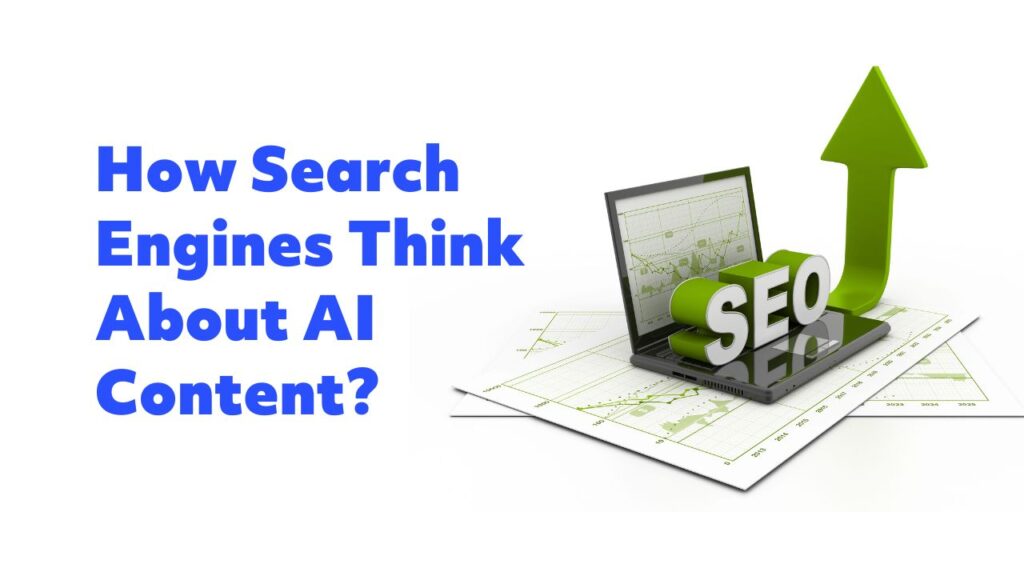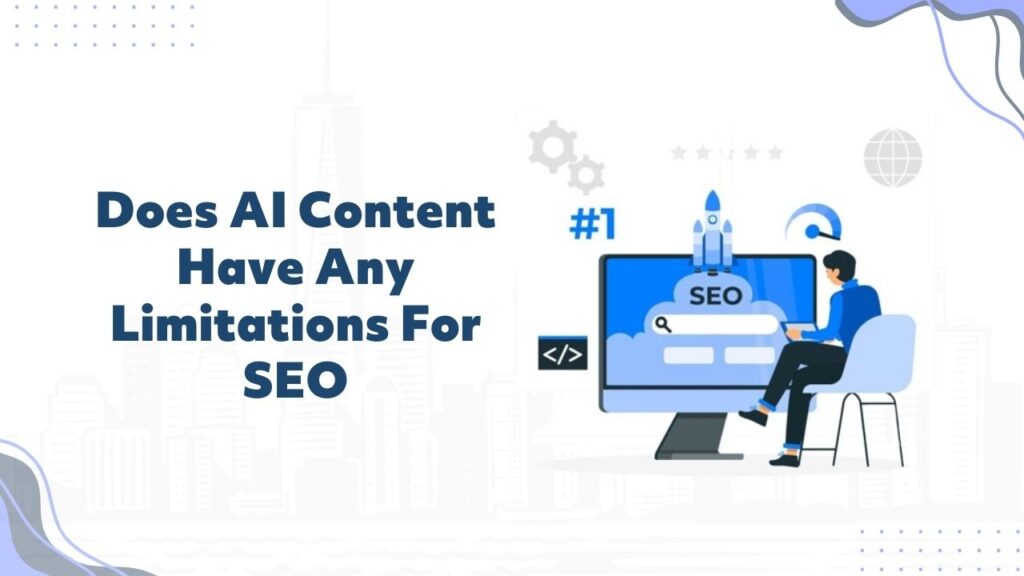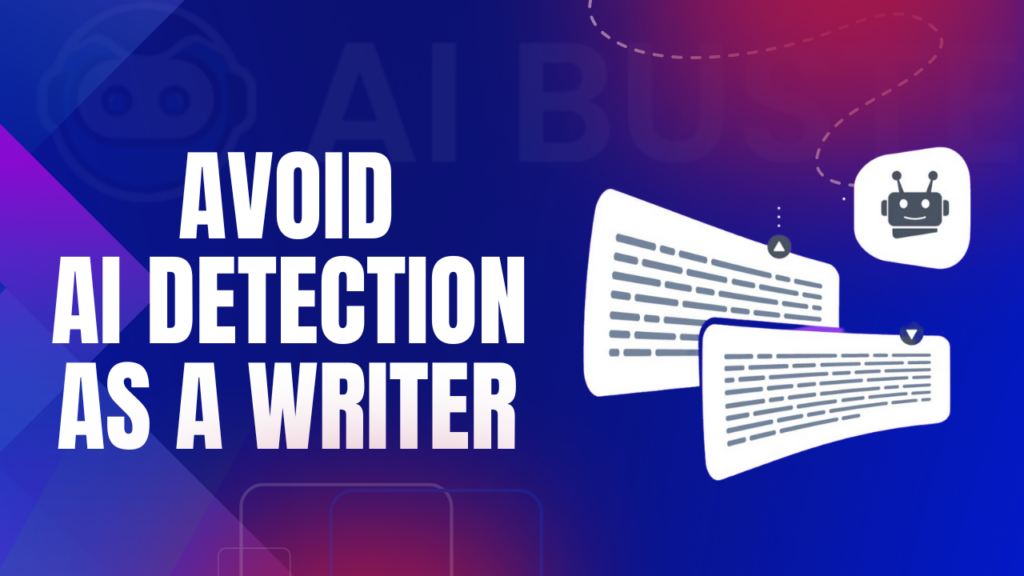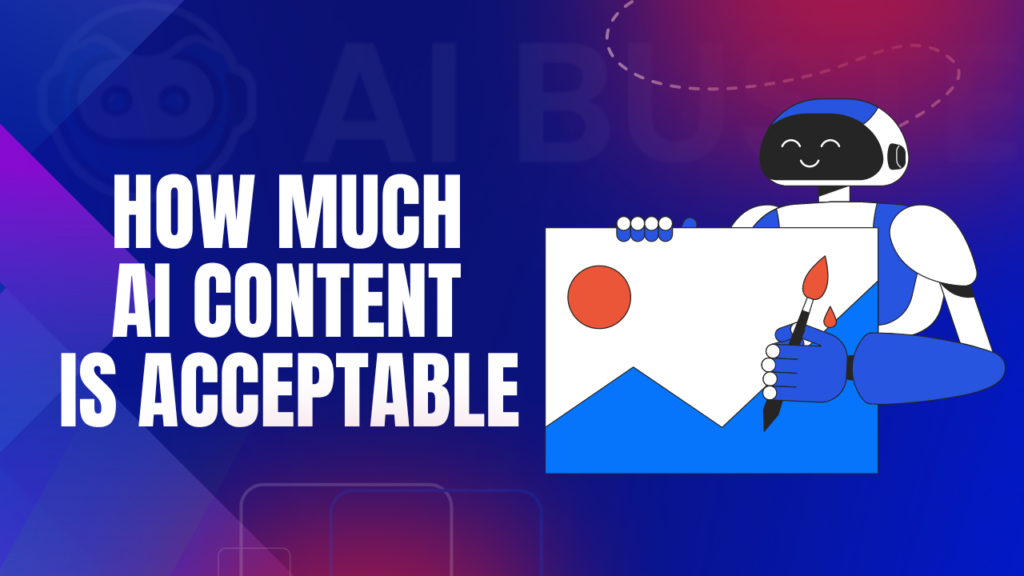AI is changing how marketers make content—faster and easier. But, here’s the thing: Can relying on AI impact your search ranking?
AI-driven content generators are a big deal in the digital content world and for good reasons. They churn out lots of content super fast, with just a few clicks and zero manual effort.
Sounds cool, right? Well, it is, but we should be careful. While AI tools are speedy, they might also dish out content that’s not unique, lacks authenticity, and sometimes just misses the mark.
So, the question is, can you use AI content, or is it smart to use AI for your website content?
Let’s discuss the whereabouts of AI content, how search engines take it, and some great options for using AI in content creation.
How Search Engines Think About AI Content?
When using AI for content, how search engines like Google see it matters. Your site’s content affects its search rankings.
Google prioritizes the need for original, reader-friendly content, regardless of who creates it (human or AI).
For AI-generated content, Google wants it to be credible, clear, and useful, meeting E-A-T guidelines (expertise, authoritativeness, and trustworthiness).
Include clear sources and show expertise through links or author bios. Add a byline and author info to convey expertise and knowledge. Ensure your site info and citations are easy to find.

What Is Google’s Stance on AI-Generated Content
Even though Google doesn’t mind AI-generated content, it’s good at detecting it. Google’s algorithms are getting smarter, and if AI content isn’t useful or natural, it gets penalized.
John Mueller (Google Search Advocate) said that machine produced content would still be considered automatically generated content, aligning with longstanding Webmaster Guidelines.
Search engines prioritize delivering relevant and valuable results to users. So, if your AI content lacks quality or value, it may not rank well—similar to poorly crafted human content.
In the end, AI-generated content can be great if done right. It needs to be natural, useful, and accurate. Quality matters, so use AI content responsibly.
Does AI-Generated Content Affect My Search Ranking?
Curious if using AI for content creation can harm your search ranking? Google says no – as long as your content is helpful, original, and relevant, you’re good to go.
Google cares more about content quality than how it’s made. Following the E-E-A-T framework, Google rewards content that’s helpful, shows expertise, and is on a trustworthy site.
The catch?
AI-generated content might not tick all these boxes (unless you’re using the right tool, of course).
As Josh Blyskal from HubSpot emphasizes, the authenticity and value of the content creator play a crucial role. In a sea of AI-written content, standing out is the real challenge.
Can You Use AI Content on Your Website – Detailed Discussion
Yes! It’s okay to use AI content for fast and efficient generation in areas like blog posts or product descriptions.
We recommend you exercise caution in critical or sensitive topics, where AI may lack necessary nuance, context, or accuracy.
Let’s discuss when to use AI content and when to avoid it!
When should you use AI content?
AI content is handy for quick and efficient writing, using internet information. It tailors content to specific audiences, allowing personalization based on preferences and behavior.
For SEO, AI tools optimize content with keywords and analyze data for impactful material. You can create news stories, financial reports, weather forecasts, and social media posts with AI.
Incorporating graphs and charts enhances content visibility. AI efficiently processes data for reader-friendly visuals, making complex topics easy and boosting website engagement.
And if you’re going with AI and want to make sure your content doesn’t suck, be sure to use the right tool.
For that, you can check out AI Buster. It’s a brainchild of a few marketers who KNOW what works.
When to Avoid AI Content?
AI content can help your website, but watch out for its downsides. Google wants trustworthy content, especially in areas like medical advice, personal opinions, and nuanced topics.
1. Medical or Financial Advice:
AI-generated content in these areas can be inaccurate, misleading, and pose risks. Medical advice from AI tools may lead to errors and patient harm, raising ethical concerns. Risks include bias, lack of transparency, and content lacking nuance and inclusiveness.
2. Sharing Opinions:
AI content lacks the authenticity of human-produced content, risking inaccuracies and loss of credibility. Over-reliance on AI for opinion pieces can result in content without context or cultural references.
3. Political Content or Related Areas:
AI struggles with nuanced content, potentially reinforcing stereotypes, bias, and exclusionary practices. AI-generated content lacks the creativity and originality of human creation.
Rapid generation of content can compromise quality, accuracy, and originality. AI can’t replace the human touch in content creation; human writers bring unique voices, irony, and humor.
Pro Tip: It’s crucial to supplement AI content with human editing and creativity for accuracy and to avoid potential downfalls.
What Are The Risks Of Using AI For Content Generation?
AI content comes with risks. Though it’s handy for marketing, education, entertainment, and research, there are challenges to handle. Let’s look at some of them:
1. Generates Content With Plagiarism Issues:
Watch out for plagiarism with AI-generated content! Here’s why: AI content generators learn from a big dataset of human-written works using machine learning.
But there’s a catch – AI can’t make entirely new data. Over time, it repeats patterns from its training data, leading to plagiarism.
This is a risk for all AI content generators because they’re widely used. Steer clear of plagiarism on your website—it violates search engine rules.
If you use plagiarized AI content, get ready to expect penalties from search engines. Ultimately which can harm your site’s reputation and overall ranking.
2. Depending Too Much on Algorithms:
Depending solely on AI algorithms can lead to inaccurate, irrelevant, or inappropriate content.
The quality of data and algorithms plays a significant role, impacting potential errors, biases, or inconsistencies. This poses a risk to the credibility and reputation of the content and its creator.
Unlike AI, human writers use judgment, intuition, and ethics to ensure correctness, suitability, and respectfulness in content.
Hence, it’s crucial to have human supervision and evaluation when using AI content.
3. Not Compliant with Google’s E-A-T:
AI content may not play by Google’s rules! Google uses E.A.T standards to evaluate all online content. It means – Expertise, Authoritativeness, and Trustworthiness.
Through these guidelines, Google checks if the hosting website and author are authentic, expert, and trustworthy.
Here’s the catch: AI-generated content doesn’t tick these E.A.T. boxes. AI lacks trust, expertise, and authority. Since AI content falls short of E.A.T. requirements, Google gives it a low rank.
For your website, a low rank means less traffic, so it’s important to prioritize content that aligns with E.A.T. standards.
4. Poses Creativity Concerns:
AI lacks creativity because it can only generate content based on existing data. It can’t create something entirely new or outside its training data.
While there’s uniqueness in the content due to different word combinations, AI fails to introduce genuinely new ideas.
Don’t use AI generated content in excess. Relying solely on AI will stuff your site with repetitive or similar content, causing boredom and reduced reader engagement.
This is detrimental to your website, because reader interaction or engagement is vital for maintaining a higher ranking on search engines.
5. Lack of Human Emotion:
Human writers express emotions in their writing, using words and vocabulary to convey feelings about a topic. Whereas, AI remains objective, analyzing pros and cons for factual content.
While suitable for straightforward articles, AI struggles with emotionally charged topics like politics or social issues.
Attempts to mimic emotions lack diversity and become noticeable when repeated. This detachment can turn readers away, affecting your site’s ranking on search engines.
Key Considerations For Safe AI Content Use
When incorporating AI for content creation, it’s essential to be aware of key factors to ensure a safe and responsible approach. Let’s discuss some key considerations:
Use AI responsibly and enhance it with a human touch. In this way, you can create reliable, diverse, and inclusive content that prioritizes your audience’s needs.
Does AI Content Have Any Limitations For SEO?
AI content has its limits in SEO. Here are some of the common limitations worth noting before you switch to AI content generation:

AI content isn’t all bad; readers may not even care if it’s AI-written. But to shine in search rankings, pair AI with human expertise for a winning combo.
That’s where AI Buster comes into play. It’s a tool designed to assist you in crafting high-quality, original, and engaging content using both AI and human touch.
With AI Buster, you can:
AI Buster saves you time and money, creating content that grabs attention, informs, and converts.
Whether it’s for marketing, education, or research, AI Buster has you covered. Avoid the pitfalls of AI content—turn to AI Buster to clear misconceptions and improve your content.
Conclusion
Writing a top-quality article usually involves some research to gather facts, opinions, and statistics from the web.
This process takes time, and only the best articles get rewarded with inbound links and good rankings. AI can speed up this process for you, saving time.
However, it’s essential to be cautious, as AI, if not filtered properly, can introduce errors and inaccuracies.
So, feel free to use AI to create your initial article, but remember to fact-check and add your own touch before publishing.
If you want to speed up your content generation process without all the risks or limitations we’ve mentioned earlier, switch to AI Buster!




